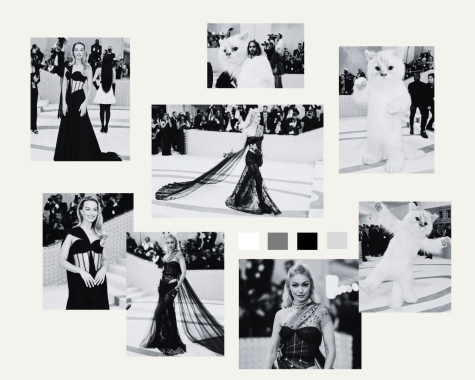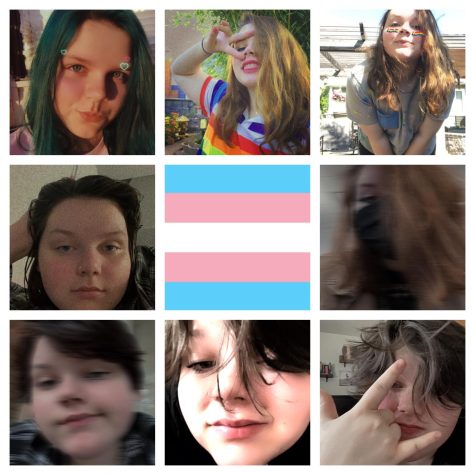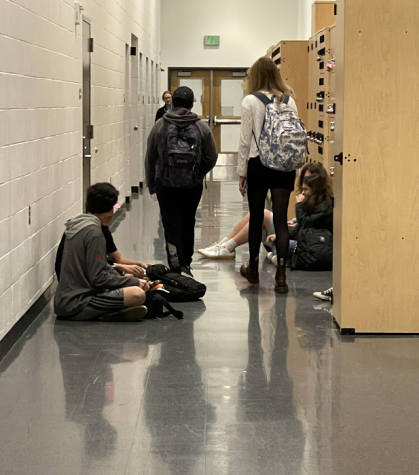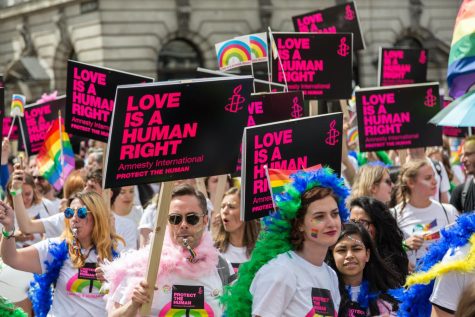Apprehensive Silence: The Social Media We Don’t Talk About
Social media has us glued to our screens, but how does it affect our mental health?
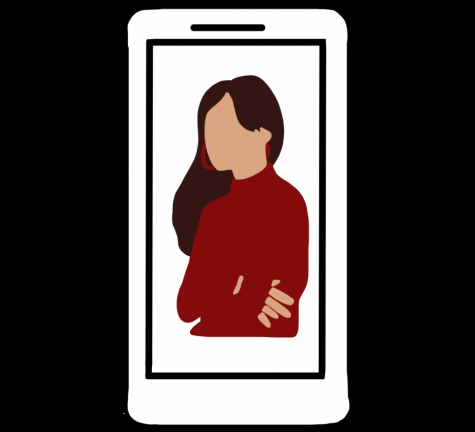
TW: mention of eating disorders, body image, and self-harm
You’re in class and your phone buzzes. It’s a notification from one of your social media platforms. You put everything aside for this single announcement, even though you have a test coming up. It might just be a DM from a friend, but what if it’s another follower? What if it’s someone posting a hate comment? What if someone is exposing you? what if…
Social media: A single touch opens a platform of dreamlike pictures from the best angles and lighting and models with the thinnest bodies. It often triggers a psychological reaction and can cause us to view ourselves in a negative manner. While there are many aspects of social media that encourage and inspire us, our negative thoughts often outweigh the positive.
Posing For The Camera
“It always feels like a competition between people for things such as likes and followers which are actually insanely useless when you think about it,” says freshman Kiana Shahbazi.
In the world of social media, the number of likes we receive can easily become an addiction. Receiving a notification that says someone has liked our post or has followed us can activate a boost of dopamine. Dopamine is a hormone also activated from things like drinking caffeine or eating a candy bar. It locks us in a constant cycle of craving more of something, and in this case, it’s social validation.
Trevor Haynes, a research technician at Harvard Medical school says social media platforms are similar to slot machines: they program us to use their products as much as possible. “Unexpected rewards increase the activity of dopamine neurons, acting as positive feedback signals for the brain regions associated with the preceding behavior.”
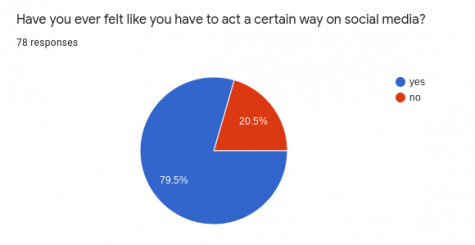
Whether we want to admit it or not, we act differently than ourselves on these platforms. People pose for the camera: whether it’s for a rare Instagram post or a simple TikTok video to make other people laugh. The idea that there are other people watching us from behind a screen can often provoke negative thoughts inside our head like “what if they think I’m ugly,” or “should I edit this?”
“I truly dislike that social media has set certain standards for teenagers when it comes to posting photos,” says junior Esha Ahmed. “It’s difficult to post whatever the person wants or feels because people are constantly thinking about how others will perceive their pictures. They analyze whether or not the photos are ‘aesthetic’ or ‘worthy’ enough when that destroys the whole point of having social media.”
Insecurities
Aesthetics: they play a big role in social media and its aura. It causes people to develop unreasonable insecurities because of the images and ideas that they are fed through social media. Whether it’s having a thigh gap or having the perfect side profile; these little things can build up to even further concerns.
Senior Ty Kalestiantz mentions how social media played a big factor in their experience with an eating disorder. “When I started using social media, my body insecurity got significantly worse and may have been a factor of the eating disorder that shook my life for 4 years. Stopping social media use and no longer comparing my body to others, I got much better.”
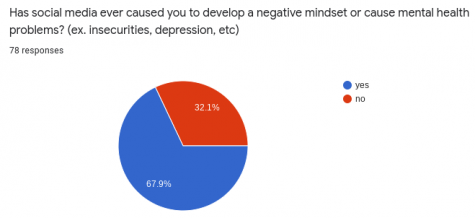
Posting is an obvious form of expression used on social media, but not everyone feels like it’s a welcoming aspect. Some feel pressured to post and others feel like there’s a standard when it comes to posting on social media.
“I dislike the constant urge to feel like needing to compare yourself to others,” says sophomore Candice Tsai. “People tend to post the best version of themselves, and coming from a person who doesn’t post much online, it can feel draining.”
Cancel Culture
Cancel culture: while it started out as a positive term used to call out racism and sexual harassment, it has become uncontrollable within a short period of time. It allows people to call out someone’s poor behavior whether it’s for cultural appropriation, using slurs, or having sexual assault allegations. The list goes on. It started as an opportunity to stop and educate people for their ignorance, but in many cases, it has become a “nicer” way to describe cyberbullying.
Sophomore Quinn Johnson is tired of the constant negativity that consumes people’s lives. “It is so toxic, people automatically believe that the people on the other side of the screen don’t have emotions and feelings, which can cause a lot of cyberbullying and/or cyber fights.”
Racism, sexism, and any other forms of discrimination aren’t viewed the same way anymore. While many take their time to calmly educate unethical behavior, you are more likely to see people commenting negative things on someone’s physical appearance, telling people to harm themselves, and/or completely parting ways with one another.
Inspiration & Inclusivity
Even with the ongoing list of negative things talked about in social media, the good things are often hidden. We often forget that social media can have an impact other than how we are viewed by others..
Over time influencers and businesses started to promote inclusivity and equality through their social media platforms. Many use their platform to inspire and educate others about topics that we may not have learned in school or from our parents.
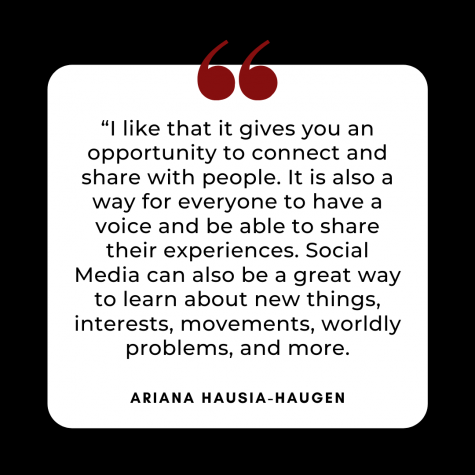
This message of activism and freedom of expression has reached many young people as well. The idea that social media is a place where people can freely express their interests and feel confident has allowed many to openly share their experiences and just be themselves.
Sophomore Anna Kim enjoys the ability to spread positivity on social media, whether it’s posting or connecting with loved ones. “I can share parts of my own life, I can see other people’s life and adventures. I get inspiration from others whether it’s places to go, fashion, trends, etc. I can also talk with my friends and connect with people!”
Entertainment
Keeping in touch with friends and other loved ones is especially difficult right now. A majority of our time is spent indoors with nothing to do, and while it may seem easier for younger generations to adjust to the pandemic because of our experience with living in a digital age, it is still a challenge. Thankfully the many advancements of social media have come in handy during these times and have allowed for many to feel at ease and connect with their friends and family.
For some, it may even feel easier and more enjoyable to keep in touch through social media platforms because of the different features and forms of entertainment. “I like that it gives me a way to talk to my friends and send them posts, as well as keep a lot of friends updated at once by posting on Close Friend or Private stories, instead of texting individual people or group chats based on that friend group,” says sophomore Trisha Ganesh. “I also like that I can compliment my friends without it being weird.”
TikToks, memes, and Instagram reels are just a few examples of how people connect with each other without feeling any sort of tension or awkwardness. While it may not be as ideal as seeing people in-person, it allows for people to bond during these hard times.
What can we do?
There is such a broad spectrum when it comes to the ups and downs of social media. Some feel that it’s a toxic environment bound to lead to insecurities and other negative thoughts, while others feel that it’s an opportunity to connect with people and express themselves to the fullest.
Social media holds an overwhelming amount of power. It can be utilized to affect positive change, but if it falls into the wrong hands, the consequences can take a negative toll on society as a whole. It’s our job to combat the silence and point others in the right direction.
Think: is canceling the best solution? Before you cut off your friend for something problematic they did, could you try educating them in a calm manner?
If you see one of your friends or peers make a harmful comment about somebody, do you just ignore it or call it out?
If you see an account spreading hate or promoting detrimental content, do you report it?
We have the power to change the “toxic” social media into positive change. Society as a whole needs to understand that there are people who use social media for the wrong reasons so we can grow from the fights, insecurities, bullying, and other negative aspects.
Your donation will support the student journalists of Mountainside High School. Your contribution will allow us to purchase equipment and cover our annual website hosting costs.
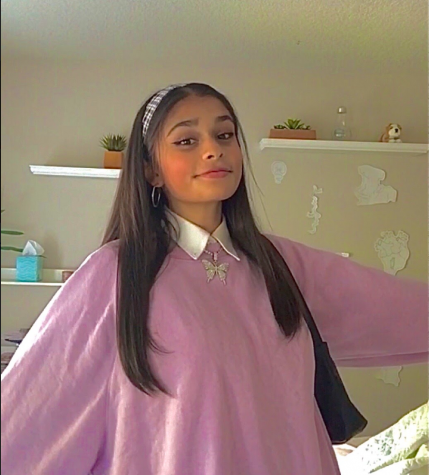
Anna Pattison is a Sophomore at Mountainside High School. She writes for the Op-Ed department, with a special focus on politics. When not working on something...



